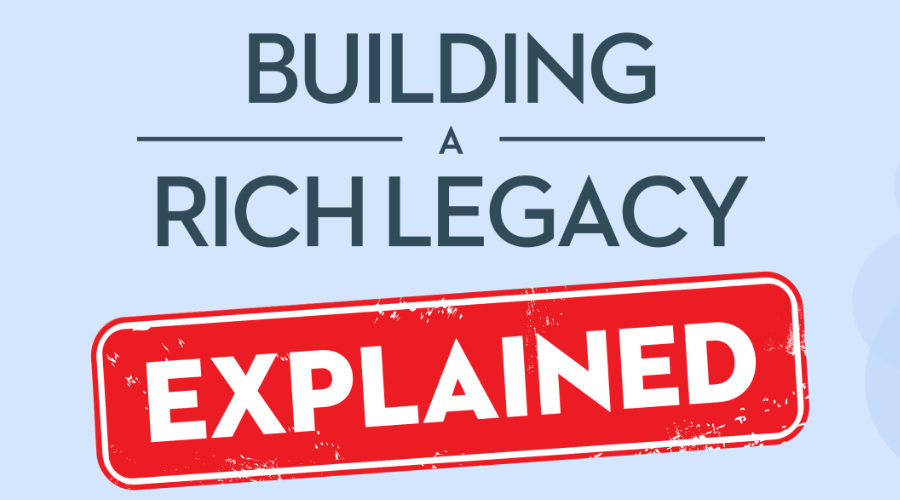Think differently about ageing; quash outdated beliefs
With a life expectancy of almost 83 years, Canadians live several years longer than the average global life expectancy of 72 years. Not only do we place high up in the ranks of overall life expectancy, we are also amongst the oldest in the global workforce. In 2018, over 2.9 million Canadians aged 60+ were still actively employed. In fact, the number of 70+ Canadians in the workforce grew from 0.24 million in 2014, to 0.32 million in 2018, a 35% jump in just 4 years. It is, therefore, fair to say that we are one of the countries that is showing the world how to stay active, live longer and remain financially independent, far beyond conventional beliefs.
The majority of Canadian retirees no longer conform to the stereotype of older adults that are slowing down and moving in with family or downsizing, or moving into a care facility or retirement housing community. While friends or family may not always understand, the truth is that older adults often do not want to and do not need to slow down. They like their independence and are capable of looking after themselves, for many years into retirement.
In addition to smarter lifestyle choices and better access to healthcare, this refreshing approach to living a longer life is also because older adults have started thinking differently about ageing. Their positive attitude towards ageism works to quash outdated beliefs about retirement and old age and helps them start looking at how to live longer, healthier and fuller lives.
What are Canadian retirees doing to live a long, healthy life?
Much has been said about that magic number for retirement savings in order to be financially independent in your golden years. However, Canadian retirees who are leading a fulfilling lifestyle are doing this in more ways than one. For them, it is not just about the finances or physical dependence on family, but also about looking at the ageing process positively. In fact, an Oxford gerontological research study has proven that a negative outlook towards ageism in your early years can reduce your overall life expectancy. It suggests that people who are age 50 or younger, who have fewer negative beliefs about ageing and old age are likely to live an average of 7.5 years longer than those with highly negative beliefs.
Dozens of famous Canadian retirees are rewriting the stereotypical rules of ageing.
- Rock stars Neil Young and Carole Pope, both in their early 70s, are still recording new material and performing live.
- William Shatner and Christopher Plummer, both in their late 80s continue to appear on stage, television and in films.
- Margaret Atwood, at 79, is arguably going through her most prolific period. In addition to writing scripts for the televised version of The Handmaid’s Tale, she has been creating the Angel Catbird superhero comic books.
- Don Cherry, in his mid-80s continues to broadcast his opinions on television, while David Suzuki in his early-80s rallies on, doing his part to save the planet.
- Canada’s first (and so far only) female prime minister, Kim Campbell in her early 70s, continues to serve Canada as the chairperson of Canada’s Supreme Court Advisory Board.
- Hazel McCallion was the mayor of Mississauga, Ontario, from age 57 to 93. Now 98, she is the Chancellor of Sheridan College in Toronto and a special advisor to the current Ontario government.
If you look closely, it is not just celebrities; thousands of older adults around Canada are showing others how to live a long life and actively pursue work, hobbies and other activities.
- From daily walks, Tai-chi, yoga, and swimming, to trekking, camping, biking, canoeing, or kayaking, they indulge in a variety of activities that promote health and happiness. In our country, there is no shortage of parks, pools, trails, and gorgeous countryside locations for living a healthy lifestyle, without burning deep holes in your pockets.
- Instead of simply sitting at home and fretting about having nothing to do after retirement, they volunteer at various community organizations, social agencies and cultural institutions.
- Come winter, many Canadian snowbirds are southward-bound to warm, sunny destinations that let them escape the harsh, cold season for a few weeks (or months).
- Through the rest of the year, they pursue reading, cooking, gardening, crafting and other hobbies and activities that help them foster a sense of purpose in their golden years.
No matter what the season, older adults in Canada have plenty of opportunities for living a healthy lifestyle and enjoying their retirement years. Moreover, smart food choices and age-appropriate workout routines are catching on among retirees, just as much as among millennials. User-friendly mobile apps, easy availability of materials on the internet, and a strong media focus on staying fit, are leading the way to healthy living.
Challenge outdated beliefs; don’t fall for stereotypes
Want to live a longer life? Simply change your beliefs and they will change your life! How often have you heard yourself, or others around you say:
- “I’m too old to learn this or do this.”
- “I’ll never pay off my mortgage or credit card debt, it is impossible to ever get ahead during retirement.”
- “I can’t keep to these diets. Eating healthy is too much work at this age.”
- “I’m just moody, it is best to be by myself and not mingle with others.”
At the end of the day, these thoughts are only your beliefs, through which you interpret everything around you. However, these self-limiting beliefs may be far from the truth. You may be holding yourself back in various areas of life, including your physical abilities, financial position and emotional state. Like all great philosophers, thought leaders and successful people say, “You CAN change your beliefs.” In fact, you are who you believe you are!
Try not to buckle under societal pressures and expectations. Stop thinking that ageing or retiring means you ‘have’ to downsize, or you ‘can’t’ get out of debt, or you ‘must’ cut back on physical activities. While changing an ingrained habit or a seemingly perpetual thought process will not be easy, challenging outdated beliefs will yield different results.
Like Henry Ford once said, “If you think you can or you think you can’t, you’re right.”
Retirement savings are a fundamental aspect of living a fuller life
Back in the 1950s, most retirees were blessed with substantial company pensions that kept them comfortable through their golden years. They also had their personal savings and Canada Pension Plan (CPP) to see them through the average retirement period of five to ten years.
Today, the situation is different. On the one hand, you have increased life expectancy, which means retirement may last anywhere between 20 or 30 years. However, company pensions are being phased out and CPP won’t even begin to cover the essentials.
On the other hand, the shift in beliefs has already begun. Retirees no longer want to be financially dependent on their children or families. They wish to stay independent and age in place. A recent survey amongst Canadian homeowners suggests that 93% respondents want to age-in-place, with almost 70% citing their need for independence as the primary reason for this preference.
With pension income going down and retirement years going up, how do you keep your finances afloat? Substantial savings or the addition of a steady income source is indeed critical for financing your retirement and leading a fulfilling lifestyle.
Live a longer, fuller life with steady retirement finances
Traditionally, downsizing has been a popular option to boost retirement income. You move into a smaller place in order to cash in on some equity. However, downsizing also has its down sides. You often need to move a long way away from your current home and your loved ones in order to make it financially viable. Realtor fees, land transfer tax and other costs soak up tens of thousands of dollars from your equity. Similarly, moving into a condo will also hike up your monthly expenses due to the addition of condo fees. And once the cash runs out, what next? You can find out more about the true costs of downsizing here.
With the CHIP Reverse Mortgage®, you can cash in up to 55% of your home’s value without having to make any monthly mortgage payments. You get to stay in the home you love, while having the money (and the freedom) to finance your longer, more fulfilling retirement.
Want to know how the CHIP Reverse Mortgage can help you thrive in your retired years? Call 1-866-758-2447 today.































